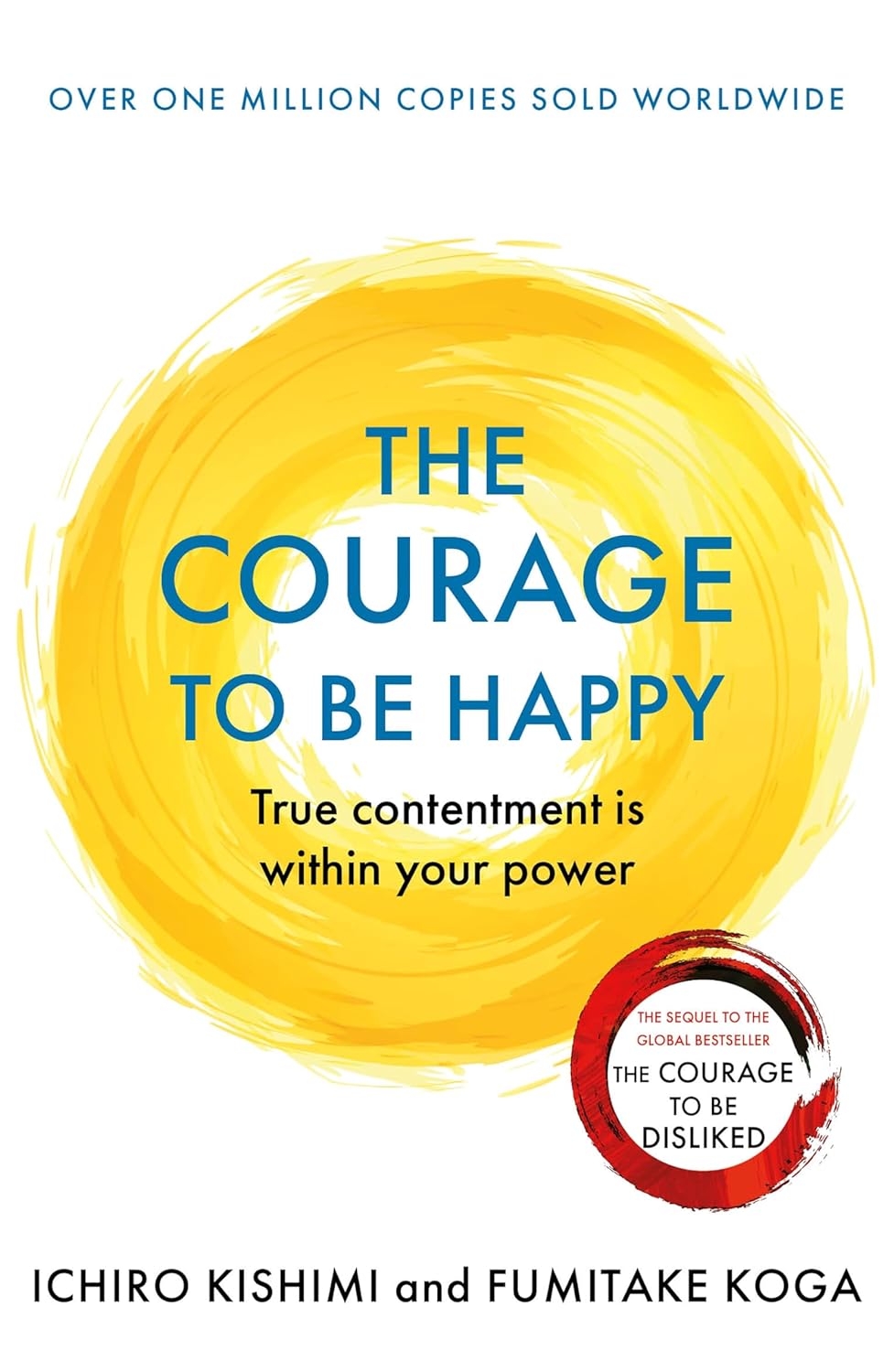Highlights from The Courage to be Happy by Ichiro Kishimi, Fumitake Koga

Highlights from this book
-
PHILOSOPHER: Here, it would do well to recall that quote from Erich Fromm: ‘Respect means the concern that the other person should grow and unfold as he is.’ Without negating anything, or forcing anything, one accepts and values the person as he is. In other words, one protects, and one has concern for, another person’s dignity. Do you see where that concrete first step lies? YOUTH: No. Where? PHILOSOPHER: This is a quite logical conclusion. It lies in having concern for other people’s concerns. YOUTH: Other people’s concerns? PHILOSOPHER: For example, the children enjoy playing in a way that is completely beyond your understanding. They get absorbed with utterly inane, childish toys. Sometimes, they read books that are offensive to public order and morals and indulge in video games. You know what I am referring to, yes? YOUTH: Sure. I see such things almost every day. PHILOSOPHER: There are many parents and educators who disapprove and try to give them things that are more ‘useful’ or ‘worthwhile’. They advise against such activities, confiscate the books and toys and allow the children only what has been determined to have value. The parent does this ‘for the child’s sake’, of course. Even so, one must regard this as an act that is completely lacking in respect and that only increases the parent’s distance from the child. Because it is negating the child’s natural concerns.
-
PHILOSOPHER: When you look at your speech and conduct, and at other people’s speech and conduct, think about the goals that are hidden in them. This is a basic way of thinking in Adlerian psychology. YOUTH: I know—it’s ‘teleology’, right? PHILOSOPHER: Would you give a simple explanation of it? YOUTH: I will try. Regardless of what may have occurred in the past, nothing is determined by it. It does not matter if there are past traumas, either. Because human beings are not driven by past ‘causes’ but live according to present ‘goals’. Suppose, for example, the person who says, ‘My home environment was bad and that’s why I have a dark personality.’ This is a life lie. The truth is that person first has the goal of ‘I don’t want to get hurt by getting involved with other people,’ and in order to realise that goal, they choose a ‘dark personality’ that doesn’t get involved with anyone. Then, as an excuse for having themselves chosen such a personality, they bring up their past home environment. It’s something like that, right? PHILOSOPHER: Yes. Please continue. YOUTH: In other words, we are not creatures who are determined by past events. Rather, we determine our own lives according to the meaning we give to those events. PHILOSOPHER: That’s right. YOUTH: And then, you said something like this: no matter what has occurred in your life until now, it has no bearing at all on how you live your life from now on. And that you, living here and now, are the one who decides your own life. So, did I get anything wrong?
-
of happiness is the feeling of contribution.
-
PHILOSOPHER: An educator is a lonely creature. One’s students all finish school under their own power, and one isn’t praised or appreciated for one’s efforts. One does it without receiving gratitude. YOUTH: So one accepts that loneliness? PHILOSOPHER: Yes. Rather than expecting gratitude from the students, one has the feeling of contribution that one has been able to contribute to the grand objective of self-reliance. One finds happiness in the feeling of contribution. That is the only way.
-
PHILOSOPHER: All right. Suppose a child asks, ‘Can I go and play at my friend’s place?’ There are parents who will grant permission, ‘Of course you can,’ and then set the condition, ‘Once you’ve done your homework.’ And there are others who will simply prohibit their children from going out to play. Both are forms of conduct that put the child in a position of dependence and irresponsibility. Instead, teach the child by saying, ‘That is something you can decide on your own.’ Teach that one’s own life and one’s everyday actions are things that one determines oneself. And if deciding things requires certain ingredients—knowledge and experience, for example—then provide them. That is how educators should be.
-
PHILOSOPHER: To Adler, the meaning of engaging in work was simple. Work is a means of production for staying alive in our Earth’s harsh natural environments. That is to say, he thought of work as a task quite directly linked to survival. YOUTH: Hmm. Well, that’s rather banal. It’s just, ‘Work so that you can eat?’ PHILOSOPHER: Yes. When we think of surviving, of eking out a living, the fact that we humans must engage in some kind of labour is a self-evident truth.
-
PHILOSOPHER: Yes. Human beings do not have the choice of not believing in each other. It would be impossible for us to not cooperate and not divide up the labour. A relationship, not of cooperating because one likes that person, but of having to cooperate whether one likes it or not. You can think of it that way. YOUTH: Fascinating! No, I mean it, this is wonderful! I’m finally getting the work relationship. Division of labour is necessary for living, and mutual trust is necessary in order to carry it out. And there is no alternative. We cannot live alone, and not trusting is not an option. We have no choice but to build relationships … That’s how it is, right? PHILOSOPHER: Yes. It truly is a life task.